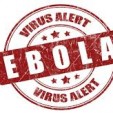What Are the Symptoms of Ebola:
The following symptoms can appear from two to 21 days after exposure:
- Fever
- Headache
- Diarrhea
- Vomiting
- Stomach pain
- Unexplained bleeding or bruising
- Muscle pain
Generally, after 21 days, if an exposed person has not developed symptoms, he or she will not become sick, the CDC said.
However, the Ebola virus has been found in semen for up to three months after exposure, so those who have recovered from the virus are advised not to have sex, or else only to have sex using condoms, during that time, according to the CDC.
How Long Does the Ebola Virus Live:
The virus can survive for a few hours on dry surfaces like doorknobs and countertops, according to the C.D.C. It can, however, survive for several days in puddles or collections of body fluid at room temperature. It is not clear how long it may survive in soiled linens and clothing.
A thorough cleaning with hospital-grade disinfectants (such as household bleach) will kill Ebola.
How Can Travelers Protect Themselves:
The CDC said travelers can do several things to protect themselves when visiting the area where the outbreak is occurring, including:
- Wash your hands frequently or use an alcohol-based hand sanitizer.
- Do not touch the blood and body fluids of an ill person or the body of someone who has died from Ebola.
- Do not touch bats and nonhuman primates or their blood and fluids and do not touch or eat raw meat prepared from these animals.
- Avoid hospitals where Ebola patients are being treated. The U.S. Embassy or consulate is often able to provide advice on facilities.
- Seek medical care immediately if you develop fever (temperature of 101.5oF/ 38.6oC) and any of the other following symptoms: headache, muscle pain, diarrhea, vomiting, stomach pain, or unexplained bruising or bleeding.
There is no vaccine for the Ebola virus, but researchers are currently testing two.
Source CDC

